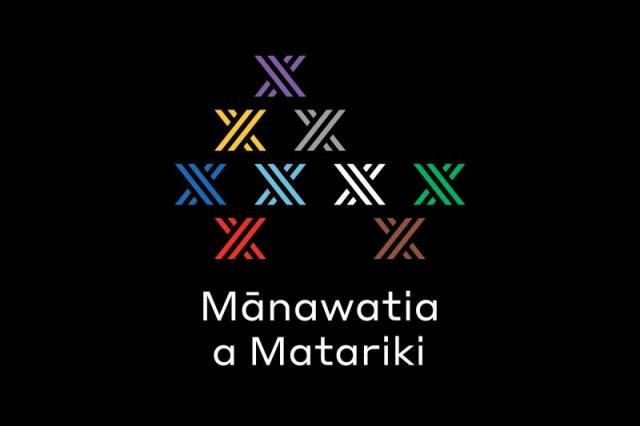International resources on self-care and collective care for organisations addressing violence
Tue 01 Nov 2022
New international resources for self-care and collective-care for individuals and organisations working to address gender-based violence include an online course, a how to guide for organisations and reflective articles.

International resources on self-care and collective care
Dare to Care is a free self-paced online course designed for researchers, practitioners and others working to prevent and address violence against women and children. The course can be completed as an individual or as part of a group or with a support partner. The course was designed by the Sexual Violence Research Initiative (SVRI). SVRI is an international network on research on violence against women and violence against children, based in South Africa.
The course has 4 modules based on a metaphor of the rain forest:
- Settling into the forest floor: How to prepare and create a safe and supportive space to complete the course
- Exploring the understory: Build a shared understanding of key concepts such as burnout, vicarious trauma and stress, including what stress means in your own context, how stress can be intersectional and what collective stress looks like
- Tending to the canopy: Explore the concept of collective care, what it offers that self-care practices cannot and analyse the factors that enable and undermine collective care in the contexts of your work
- Flourishing at the emergent layer: Develop a collective care growth plan and identify your own role in collective care and prepare to take action.
The online course includes short videos with transcripts, reflective practices for individuals or groups, and meditation. It comes with a downloadable Guide and Reflection Journal, as well as guidance on how to go through the course safely as an individual or group.
The course is part of the We Care Project from SVRI on Institutionalising Accessible Staff Wellness and Resilience Policies, Tools and Practices for the GBV [gender-based violence] Field. Additional resources from the project include:
- Video recordings of webinars on Decolonising Wellness and Self-Care and Leadership, self and collective care
- A case study on creating and maintaining a culture of self and collective care at an organisation that addresses violence
- A case study on promoting wellbeing through self and collective care for staff on a research project
- An Evidence Review that explores research into how wellness and care can be institutionalised in the violence against women field.
The SVRI work highlights the opportunities and responsibility for organisations to support the wellbeing of staff and volunteers, taking into account the wider factors that affect access to wellbeing. In the SVRI blog post From Me to We: reclaiming the need for collective care (2021), the authors write:
"We are not the first group to critique dominant approaches to self-care, resilience, and wellness – largely rooted in western paradigms – which place the burden of care and coping on individuals, often in their personal capacity. The individualised focus does not acknowledge that our work spaces and work cultures themselves may be contributing to our stress and trauma nor does it highlight the role that institutions and organisations must play in preventing burnout, and promoting and nurturing wellness, care, and kindness."
Making Cents International has published the guide How to embed self- and collective care within organizations addressing gender-based violence (2022). The guide is available in English, عربى , Français and Español. The guide outlines 3 pillars to guide organisations when implementing self- and collective care:
- Values, organisational culture, and leadership
- Policies and structures
- Contextualised practices.
For each pillar, it outlines what is involved, potential barriers, needed resources and practical suggestions. The guide highlights that:
"Putting self- and collective care into practice requires courage, intentionality, resources, and a willingness to imagine a different kind of organization. Funders can play a critical role in validating and supporting this process."
Womankind Worldwide, a UK-based global women's rights organisation, published Nurturing the beating heart of feminist movements: Lessons drawn from Womankind Worldwide’s Movement Strengthening Fund (2022). The report shares lessons from nine initiatives on how to strengthen feminist organising. The lessons address wellbeing, continuous learning, building a solid movement infrastructure, leadership strengthening and ensuring diversity and inclusion. The report has recommendations, including this recommendation for funders:
"Promote self and collective care: Feminist movements need funding to ensure their work does not fragment them and they have the ability to withstand processes of rusting and erosion. They need to engage with strategies focusing on holistic development with an emphasis on intellectual, psychological, physical and spiritual stimulation and wellbeing. All this emphasises the very real need to look after themselves, ‘time out’ to nurture and look at one’s sources of inspiration."
Another SVRI blog post explored Self-Care: What’s Power Got to do With It? (2022), writing:
"Many organisations have made efforts to support their staff during enormously challenging times and given thought to how to prioritise and encourage self-care both at and outside of work. However, this commitment to inclusive approaches to care is far from the norm, even within our field, and we wanted to reflect on whose voices are included and who has limited or no access to meaningful practices around self and collective care: how do power and privilege impact on concepts of and access to self and collective care within organisations?"
The article, Self-care for gender-based violence researchers – Beyond bubble baths and chocolate pralines (2022), explores relational and collaborative ways of self-care and caring for each other for gender-based violence researchers, especially when there is lack of institutional awareness and support.
The article, The better to break and bleed with: research, violence, and trauma (2021), is one researcher's reflections on experiencing emotion and trauma in social science research, in relation to studying violence, and explores "how a trauma-informed ethics of care, grounded in a collective process of seeking and finding guidance and support, might look."
Researchers who reviewed studies of interventions to address vicarious trauma for service providers working with traumatised clients found that most interventions were self-care based and often focused on general stress management rather than addressing the specific effects of vicarious trauma. While the interventions generally showed positive benefits, researchers call for interventions tailored to address vicarious trauma for different service settings and participant characteristics. For more information see the article A scoping review of vicarious trauma interventions for service providers working with people who have experienced traumatic events (2021).
See our related news stories below for additional resources related to wellbeing and collective care.
Update: Safe and Equal, based in Australia, has created resources to support wellbeing for people who work in primary prevention of family violence. The 'How We Thrive' Video Series (2023) includes 4 brief videos and tip sheets. These resources are designed to help managers and organisational leaders understand what prevention practitioners need to feel supported and valued in their organisations, as well as helping prevention practitioners to advocate for their own projects and wellbeing.
Update: The report How Can We Ground Ourselves in Care and Dance Our Revolution? (2023) explore actions to prioritise collective care to mitigate risks and promote the wellbeing and sustainability of feminist movements. It draws on interviews with 141 activists in 63 countries speaking on how they integrate care into their activism and work. In announcing their report, Urgent Action Funds consortium said:
"The report also calls on funders to provide more resources to fund collective care practices among feminist movements, directly providing recommendations, and next steps from activists on the frontlines. The perspectives shared in our report offer a unique and diverse understanding of collective care, highlighting the experiences of women, trans, and non-binary feminist activists who have been historically marginalized within social justice movements worldwide.
We’ve asked those who compiled the research to provide a deeper understanding of the importance of collective care in the feminist space."
Update: In the Collective Care and Kindness (2023, SE212) podcast, SVRI explores the concept of collective care - the practice of taking responsibility for the wellbeing of each other, as individuals and as a community. It looks at the dangers faced by women and children globally in the sphere of activism, and how collective care can support and heal those who are vulnerable to attacks. It also looks at the importance of integrating collective care into our organisations and what this can look like.
Update: UK-reseacher Malaka Shwaikh explores the limits of resilience by drawing on hundreds of interviews with global survivors of wars and violence in the article Beyond Expectations of Resilience: Towards a Language of Care (2023).
Related news
InsideOUT Kōaro and researchers from the University of Otago documented the development of a culture of care to support the wellbeing of Rainbow activists involved with InsideOUT Kōaro in the article Creating a culture of care to support rainbow activists’ well-being: an exemplar from Aotearoa | New Zealand (2022).
Housing First Auckland shared a video recording of a presentation on Maramataka - a deeper connection to te ao Māori to support self-care (2022) from Ayla Hoeta and Vikki ham. The presentation slides and a downloadable Maramataka Dial are also available.
Advocates and researchers have continued to document the impacts of the COVID pandemic on advocates and organisations working in gender-based violence. Some of the recent resources include:
- Video recording of the webinar on Helping from home: Domestic and family violence worker wellbeing during the ‘shadow pandemic (2022) from the Monash Gender and Family Violence Prevention Centre [Australia]
- The articles The Impact of the COVID-19 Pandemic on Staff in Violence Against Women Services (2022) and “There's no amount of tea in the world that is going to fix the patriarchy right now”: The gendered impacts of the COVID-19 pandemic for women in the gender-based violence sector (2022) share findings from interviews and focus groups with staff about their experiences during the pandemic in Canada
Find more research and resources related to COVID-19 and violence in our library under the quick topic search on COVID-19.
Related media
The Waikato kaimahi kapa haka competition is connecting to a tool for healing, NZ Herald, 27.10.2023
Mātauranga on app for mental health mindfulness, Waatea News, 11.10.2022
Image: Harli Marten on Unsplash





